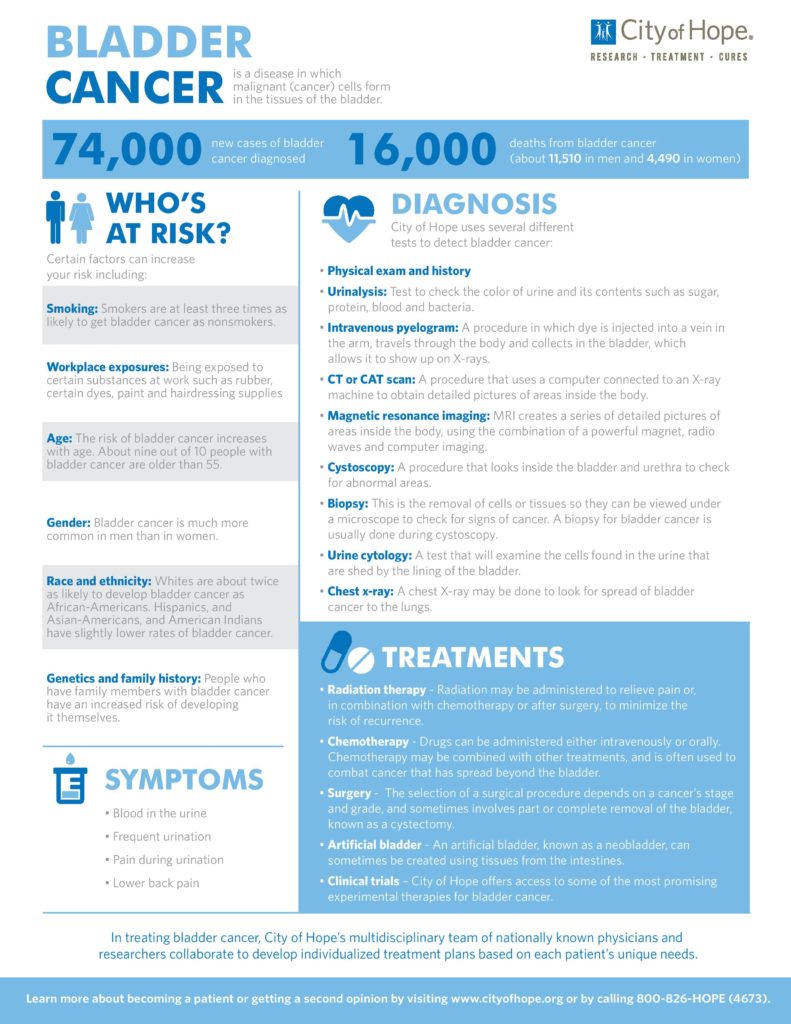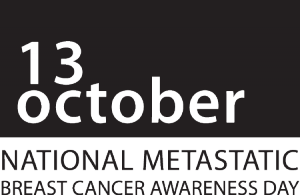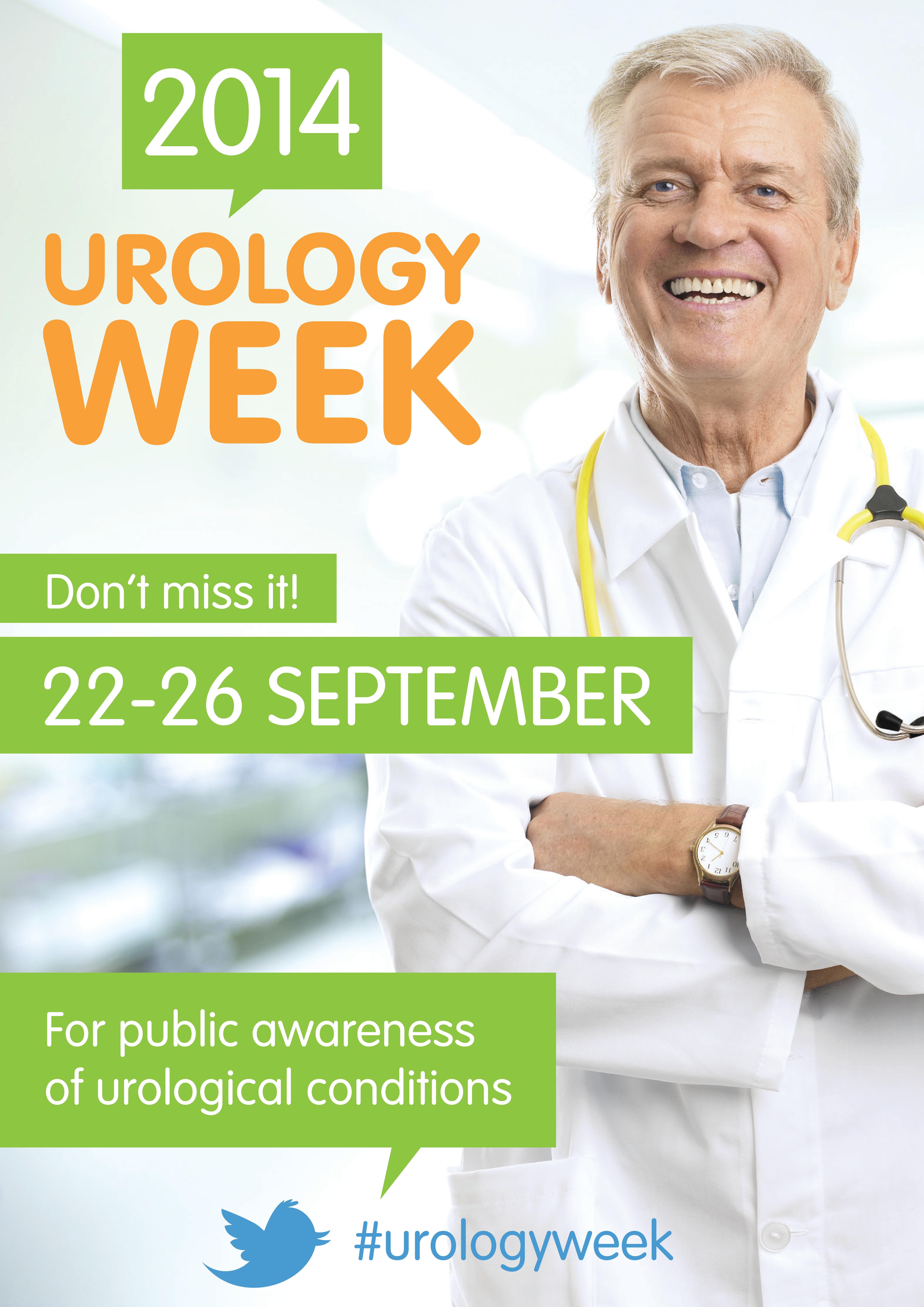Symptoms of bladder cancer
Blood in your urine is the most common symptom of bladder cancer.
The medical name for this is haematuria and it’s usually painless. You may notice streaks of blood in your urine or the blood may turn your urine brown. The blood isn’t always noticeable and it may come and go.
Less common symptoms of bladder cancer include:
a need to urinate on a more frequent basis
sudden urges to urinate
a burning sensation when passing urine
If bladder cancer reaches an advanced stage and begins to spread, symptoms can include:
bone pain
swelling of the legs
When to seek medical advice
If you ever have blood in your urine – even if it comes and goes – you should visit your GP, so the cause can be investigated.
Having blood in your urine doesn’t mean you definitely have bladder cancer. There are other, more common, causes including:
a urinary tract infection, such as cystitis
an enlarged prostate gland, in men



